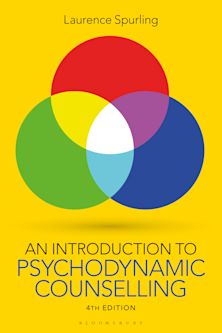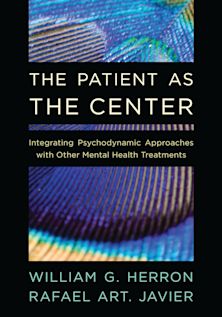- Home
- ACADEMIC
- Psychology
- Psychotherapy & Counselling
- Teaching, Training, and Administration in Graduate Psychology Programs
Teaching, Training, and Administration in Graduate Psychology Programs
A Psychoanalytic Perspective
Teaching, Training, and Administration in Graduate Psychology Programs
A Psychoanalytic Perspective
You must sign in to add this item to your wishlist. Please sign in or create an account
Description
Teaching, Training, and Administration in Graduate Psychology Programs offers a unique contribution to literature by presenting psychoanalytic perspectives on the challenges of educating future psychologists. By integrating psychoanalytic theory with engaging cases and practical applications, the authors explore how psychoanalysis can foster a deeper understanding of the questions and decisions that graduate psychology faculty and administrators must face every day. This book proves to be an accessible and valuable resource for instructors, administrators, and graduate students.
Product details
| Published | 11 Oct 2017 |
|---|---|
| Format | Ebook (Epub & Mobi) |
| Edition | 1st |
| Extent | 224 |
| ISBN | 9781442244979 |
| Imprint | Rowman & Littlefield Publishers |
| Illustrations | 1 Table |
| Publisher | Bloomsbury Publishing |
About the contributors
Reviews
-
This book utilizes psychoanalytic theory to conceptualize challenges faced in the teaching and training of doctoral psychology students and the dilemmas faced in the administration of such a program. The use of psychoanalytic theory to discuss larger institutional dynamics and societal dynamics is highly original and very valuable. The authors provide a textured understanding of the kinds of decisions contemporary professors and administrators face. The book provides faculty and administrators with a rich framework from which to conceptualize decisions, actions, acting out, dilemmas, etc.
Barry Dauphin, University of Detroit Mercy
-
This book demonstrates the value of a psychoanalytic perspective in an arena that is increasingly dominated by market forces, quick fixes, and allergic reactions to looking at how unconscious processes complicate clinical work and education. It will be embraced by psychoanalytic faculty, administrators, and students in graduate psychology programs.
Dennis Debiak, Widener University, Institute for Graduate Clinical Psychology



































